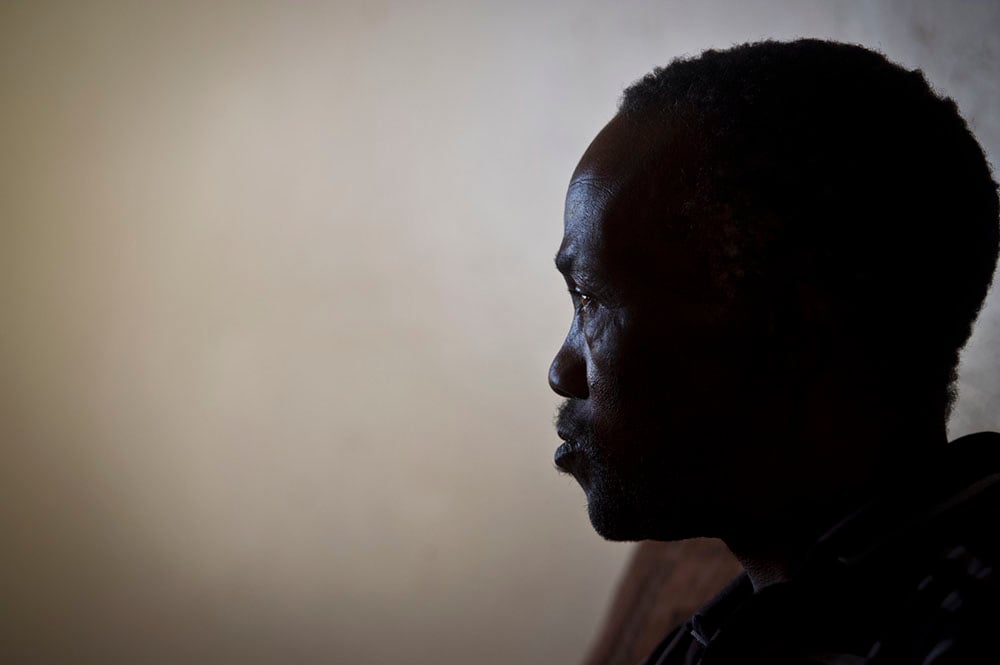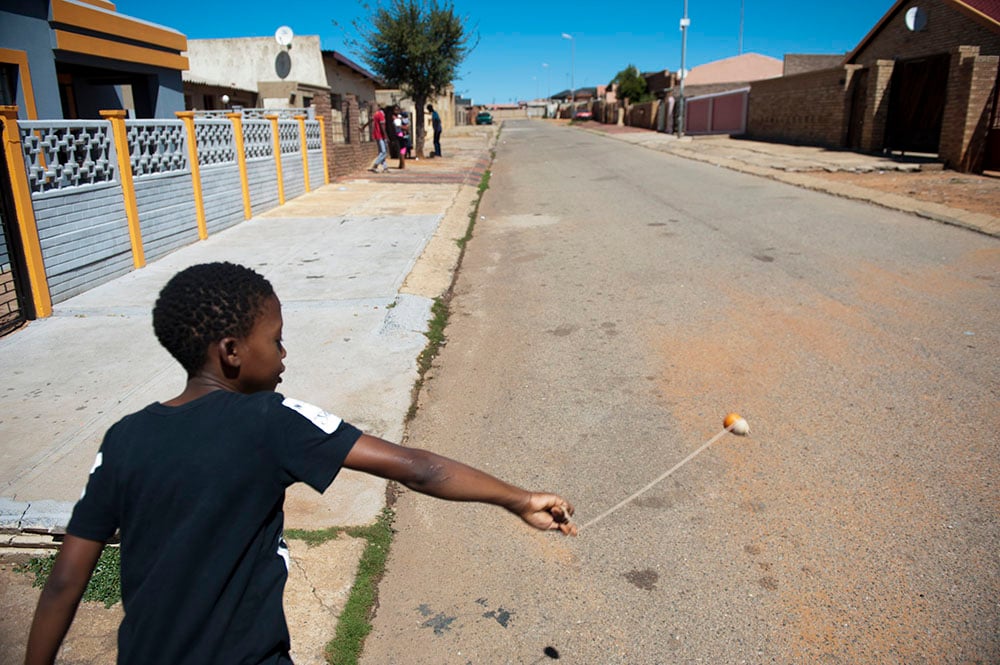The anti-pass march on March 21 1960 in Soweto started from Robert Sobukwe's house.
A group of boys throw a spinning top through Kuluse Street in Mofolo, Soweto. It clatters to the ground and the boys chase after it. One of them groans, “Holidays are so boring.”
It’s March 21 and despite the historical moment of Human Rights Day, Soweto is sleepy.
But in 1960, the Pan Africanist Congress’s anti-pass campaign began here. Robert Sobukwe marched from Molofo to Orlando police station with small groups of followers joining along the way. Most were arrested. That same day 5 000 people went to the police station in Sharpeville, near Vereeniging; 69 were shot dead.
Sobukwe was jailed two months later for inciting black people to oppose the pass laws.
Everything is orderly in Mofolo now. The slabs of concrete houses are still, quietly shut down from the significance of the day. There are memory gaps in Mofolo, which deepen as elders from the struggle edge closer to death. With their passing, parts of history disappear from collective memory, leaving the story of anti-apartheid history incomplete.
Njengabantu Hlatswayo (58) lives in Kuluse Street and recalls the stories his father told him so that the 1960 march would not be forgotten.
Simahla Hlatswayo was the chairman of the PAC branch in Mofolo. He marched alongside Sobukwe.

Njengabantu Hlatswayo. (Photos: Delwyn Verasamy, M&G)
Decades later, his march has dwindled in South Africa’s memory bank.
“Sharpeville and Parliament overshadowed the march up here in Soweto,” Hlatswayo says. “What we know is the march started in Soweto, but where the spotlight goes most is where people have got shot.”
Growing up, his father told him first-hand accounts of the march, detailing how they met in groups from 7am and proceeded to the station. His father had some misgivings that day, believing it would provoke too much violence from the apartheid police. It was as they stood outside the police station under the shade of a bluegum tree, that they heard about the stonethrowing and shootings in Bophelong and Boipatong, near Vanderbijlpark and Vereeniging. At least two protesters were shot dead.
“Most of the time, actually, other people say that they made people cannon fodder,” Hlatswayo said. “I’m proud of them all.
“There is something that happened there, because even Sobukwe – he is more than Jesus because of his leadership.”
Sobukwe’s house is a face-brick building a stone’s throw from Hlatswayo’s home. Look around the corner of Kuluse Street, and you’ll see it. The march began here.
Sobukwe’s wife sold the house a few years ago, but the new owner says she does not know about Sobukwe or his history.
Opposite the house, a few women are talking. Onico Vilakazi (57) says: “It [March 21] is important for us because we were there in the 1976 march. We know everything about ’76, but we also know about the ones a long time ago, because the [older people] always tell us about it.”
Vilakazi’s father was a PAC member who marched that day.
But not everyone knows the stories of anti-apartheid protest in Soweto. The protest memory of many appears to begin in June 1976.

Kuluse Street.
The road to the police station continues, and slabs of concrete houses disappear into supermarkets and laundromats. Taxis hoot, but the streets are almost empty of pedestrians.
Dube station, where Sobukwe stopped to increase his numbers, is quiet; traders look gloomy at the prospect of work on a public holiday.
Finally, 8km from Sobukwe’s home, the police station appears on the left. It’s hidden by a tall fence.
The bluegum tree has been uprooted and replaced by a Rea Vaya bus terminus.
A group of youngsters sit outside the police station. Unlike the children in Kuluse Street who play with a spinning top, they’re more into tech, latching on to the station’s wi-fi to download games.
“It’s obvious mos,” one teenager says, when asked what Human Rights Day is about. He struggles to elaborate, but a friend helps him out.
“It is when our great-grandfathers and great-grandmothers fought for our freedom,” says Moitheri (15). “My great-grandparents were there, my grandparents told me about it.”
His friend taunts him, saying “old people always lie” about their activism during apartheid.
This is a generation Hlatswayo struggles to understand.
And it troubles him that the stories of Soweto’s aging residents may never be told – and that the March 21 1960 anti-pass protest is being forgotten.